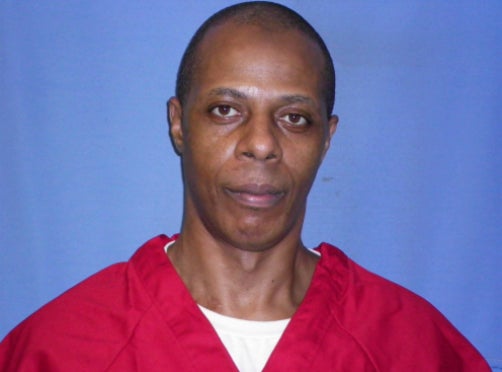Supreme Court clears way for execution of man who killed Natchez college student
Published 2:49 pm Wednesday, September 18, 2024

- Willie Jerome Manning
|
Getting your Trinity Audio player ready...
|
Willie Jerome Manning, sentenced to death for the murder of two Mississippi State University students 30 years ago, “has had his days in court” and now an execution date can be set, the Mississippi Supreme Court ruled Monday.
“Petitioner has had more than a full measure of justice,” Chief Justice Michael Randolph wrote in the majority opinion joined by justices James Maxwell II, Dawn Beam, David Ishee and Kenneth Griffis.
“(Victims) Tiffany Miller and Jon Steckler have not. Their families have not. The citizens of Mississippi have not. Finality of justice is of great import in all cases.”
Steckler was a Natchez resident at the time of his death.
The court wrote that unnecessary and unjustified delays affect justice and fairness owed to victims and defendants, and the Mississippi Constitution directs the court to balance the rights of both.
Justices James Kitchens, Leslie King, Josiah Colemen and Robert Chamberlin did not agree and joined a dissent order.
This paves the way for the court to set Manning’s execution. Within 21 days after an entry of judgment and issue of a mandate to the trial court, the state will be able to proceed. That timeline could be delayed if there is a rehearing, which Manning’s attorneys have said they plan to pursue.
Krissy Nobile, executive director of the Office of Capital Post-Conviction Counsel, reiterated Tuesday that an execution date has not been set for her client Manning and the case will remain open until the court issues a mandate. The legal team is reviewing all options at the state and federal level, she said.
Last year, Lynn Fitch’s office asked the court to set execution dates for him and Robert Simon Jr., who was convicted for the murder of members of a Quitman County family in 1990. Another stay blocked execution until the court considered Manning’s petition for post-conviction relief.
The state tried to set his execution in 2013, which was blocked by a stay. The court allowed Manning to seek DNA and fingerprint testing, but after six years the results were inconclusive.
In its order, the state Supreme Court found multiple procedural bars prevented it from considering Manning’s petition.
Manning filed a petition for post-conviction relief in September 2023, and in it he maintained his innocence and raised new evidence about recanted testimony from three people and questionable firearms evidence used in his case.
The court didn’t accept arguments about newly discovered evidence, ruling his claims were already raised in previous petitions and rejected.
Attorneys presented evidence about recanted testimony from Earl Jordan, Manning’s cousin, who was in jail with him who said in court Manning confessed to killing the students.
“In the last twenty-six years, a majority of this court has never held that the evidence at trial was anything but overwhelming,” the order states. “Jordan’s recanted testimony would not have changed the verdict.”
Manning also presented a 2013 affidavit from a firearms expert that raised doubt about the scientific validity of firearms examinations and conclusions from them.
Under Brady v. Maryland, it is a violation if the state fails to provide a defendant or their defense attorneys with evidence that can be favorable or helpful to their case. The court said Manning’s claims of Brady violations through the recanted testimony have already been rejected in previous applications for post conviction relief.
In an updated version of his petition, Manning argued the court is able to make exceptions to procedural bars like it did in two other death penalty cases, which the court denied in its order.
Manning’s attorneys said the court’s decision ignores debunked forensic science and newly discovered evidence. Without them, there is no evidence linking Manning to the murders and victims – no DNA evidence, fibers, fingerprints and other physical evidence, the Office of Post-Conviction Counsel said in a statement issued Tuesday evening.
In a four-page dissent, Kitchens wrote the court “perverts its function as an appellate court and makes factual determinations that belong squarely within the purview of the circuit court.”
If the court finds an important witness like Jordan recanted testimony and offers a reason for giving false testimony at trial, defendants are entitled to an evidentiary hearing to find whether the witness lied at trial or in an affidavit. Kitchens writes that this did not happen for Manning but has happened in other cases.
The court should remand the case to the circuit court for an evidentiary hearing to determine whether there could be a different outcome without Jordan’s testimony and the truthfulness and timeliness of his recantation, the dissent order states.
“Only then should this court consider — under the appropriate standard of review — the merits of Manning’s request for post-conviction relief,” Kitchens wrote.
In 2015, Manning was exonerated of the 1993 murders of two women in Starkville.
Editor’s note: This article originally published at mississippitoday.org.






